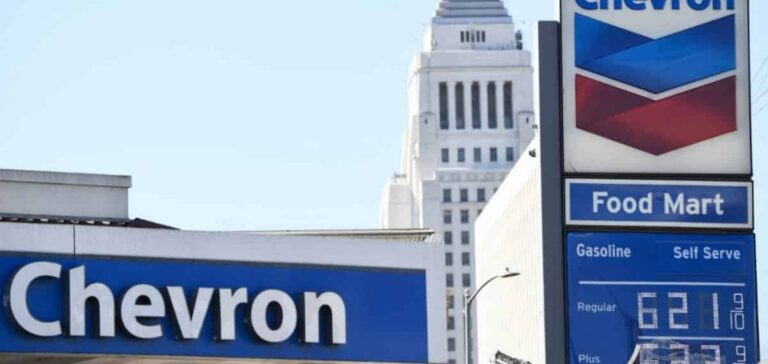The announcement of the end of Chevron’s operating licence in Venezuela could disrupt the already fragile economy of the country. Chevron, which is involved in several oil projects alongside the Venezuelan state-owned company PDVSA, accounts for approximately 25% of Venezuela’s oil production, a country that holds the world’s largest reserves of crude oil. If this decision is implemented, it could have direct consequences on oil production and exports, which are a key sector of the Venezuelan economy.
Economic consequences for Venezuela
Venezuela is going through a severe economic crisis, with a nearly 80% drop in GDP between 2014 and 2021. Oil production, which stood at 3 million barrels per day in 2002, plummeted to under 400,000 barrels per day in 2020, a historically low level. Chevron, generating between $150 million and $200 million per month for the country’s economy, plays a crucial role in supporting government cash flow. The absence of this financial resource could deepen the recession and lead to rampant inflation. Economist Leonardo Vera from the Central University of Venezuela warns that the impact of this decision could turn a modest growth scenario into a more severe crisis.
Impacts for the United States and the oil market
On the U.S. side, the direct impact appears limited. According to Jorge Piñon of the Energy Institute at the University of Texas, American consumers are unlikely to notice any significant difference, as Venezuelan imports could be replaced by exports from Canada. However, the loss of Chevron as a strategic partner in Venezuela could complicate matters for PDVSA, which relies on international partnerships to maintain its production. If Chevron chooses to withdraw, as other oil giants such as Exxon and Conoco have done, it could lead to the end of a significant part of extraction activity, and Venezuelan production could fall further.
Possibility of negotiations and future outlook
Chevron’s licence was renewed for six months in February 2025, leaving a window for negotiations before its full review in August. Expert Francisco Monaldi suggests that negotiations could take place between U.S. authorities and the Venezuelan government. Similar pressure to that exerted on countries like Colombia or Mexico might be considered, with threats of economic sanctions or changes to tariff duties. However, any agreement would depend on mutual concessions and perceived benefits for both sides.






















